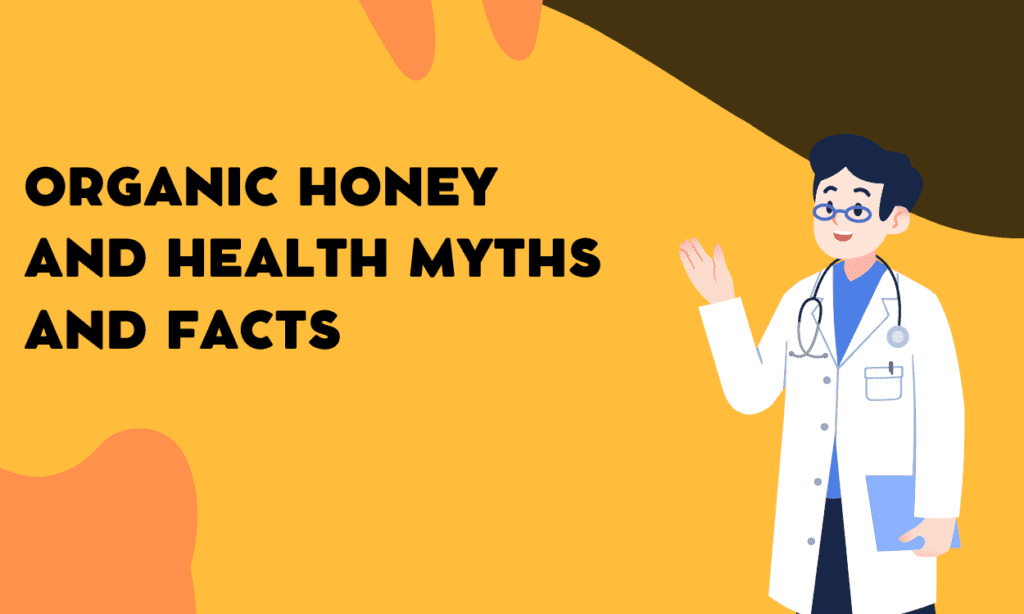

Organic Honey and Health Myths and Facts
For ages, honey has been a staple in our diets, valued for its sweet taste and possible health benefits. Thanks to organic honey manufacturers, people can now access this pure organic honey produced using organic flowers and plants. Organic honey is not exposed to synthetic pesticides, herbicides, or genetically modified organisms (GMOs) and has grown as a healthy alternative to conventional honey. However, numerous myths are associated with organic honey and its health benefits. In this blog, we shall dispel some such myths and differentiate them from reality.
Organic Honey Myths Vs Facts
Myth 1:
All honey is the same: One prevalent myth is that all honey, whether organic or conventional, is the same. Nothing could be further from the truth.
Fact 1:
In reality, the source of nectar, beekeeping practices, and processing methods can all significantly impact honey’s flavour, quality, and environmental footprint. However, one fundamental distinction between organic and conventional honey is how bees are treated and the beekeeping procedures used for honey production. Organic honey is derived from beehives that are not treated with synthetic chemicals, pesticides, or antibiotics. Organic honey contains no harmful chemicals. Beekeepers must follow strict organic agricultural guidelines, which forbid using dangerous chemicals in the bees’ surroundings.
Conversely, conventional honey may originate from hives that utilize pesticides and medicines to protect the bees and prevent sickness. These pollutants may infuse with honey, posing health concerns to users.
This means that by choosing organic honey over conventional honey, you are less likely to consume pesticide or antibiotic residues that may cause health issues
Myth 2
Organic honey is a cure-all. Honey has been commended for its possible health advantages, including antioxidant capabilities and calming effects on sore throats and coughs, whether organic or conventional. Some people feel that organic honey is a miraculous remedy for anything from allergies to diabetes.
Fact 2:
Even though honey has certain health benefits, it is not a cure-all and should be used in moderate quantities. Due to its high sugar content, eating excessive honey might result in weight gain. Furthermore, while some people use honey to relieve allergy symptoms, the data that honey can relieve allergies is limited, and we do not make such claims.
Myth 3:
Organic honey is always raw. Another common misunderstanding is that all organic honey is raw. Raw honey has not been heated or pasteurized, allowing its natural enzymes and antioxidants to be preserved. Some people believe organic honey must be raw because it is “pure” and unprocessed.
Fact 3:
Organic honey can be either raw or processed. It is available in both forms. It is critical to read the label to determine the processing method employed. While raw honey has more natural advantages, processed organic honey is a better alternative than processed conventional honey because it does not include synthetic chemicals.
Myth 4:
Organic honey tastes better. People frequently believe that organic honey tastes better than regular honey. While organic honey may have a different flavour profile due to the flowers foraged by bees, taste is subjective, and individual preferences may vary.
Fact 4:
The flavour of honey, whether organic or conventional, is determined by the floral sources from which bees collect nectar. Each variety of honey has a distinct flavour influenced by the flowers near the beehives. So, while organic honey has a different flavour than conventional honey, this does not necessarily make it superior or inferior.
Myth 5:
Organic honey is expensive for no reason. Some people assume that organic honey is expensive and provides no practical advantage over ordinary honey, believing it to be a marketing gimmick.
Fact 5:
Organic Beekeeping takes more attention and resources. Organic beekeeping entails tighter standards and techniques that can be more labour-intensive and resource-intensive. When choosing honey for your diet, one must always make informed choices and prefer businesses that value bees and environmental welfare. In the sustainable honey manufacturing process, beekeepers devote time and effort to keeping healthy hives free of industrial chemicals. This additional attention and care may result in a higher cost of honey.
Conclusion
Finally, organic honey has various potential advantages over conventional honey, owing to the lack of toxic chemicals and more environmentally conscientious beekeeping practices. However, it is critical to approach the right organic honey manufacturers dealing in pure and sustainable honey production.
We at Aravali Honey Industries are the second generation of sustainable beekeepers known for producing and supplying different types of organic and infused natural honey. We are the bulk honey suppliers who take pride in delivering premium quality honey to several businesses nationally and internationally. While our honey is known for its potent health benefits, it is not a cure-all and should be consumed in moderation. To place your bulk orders or to learn more about our products, feel free to reach out to us @https://aravalihoney.com/